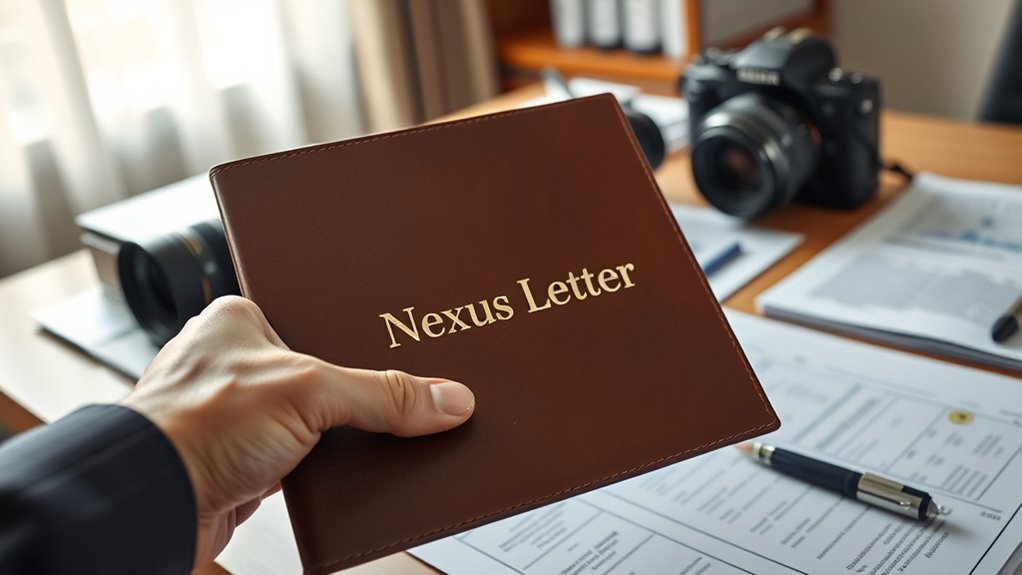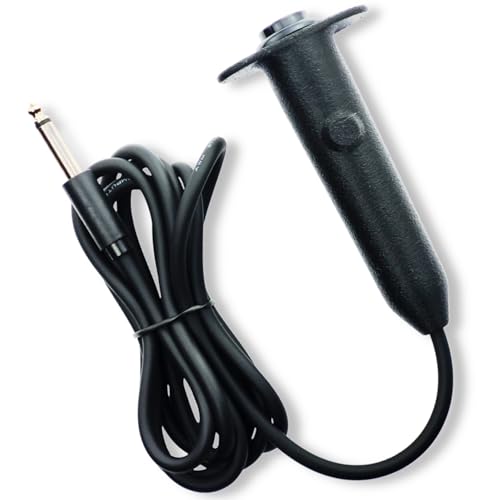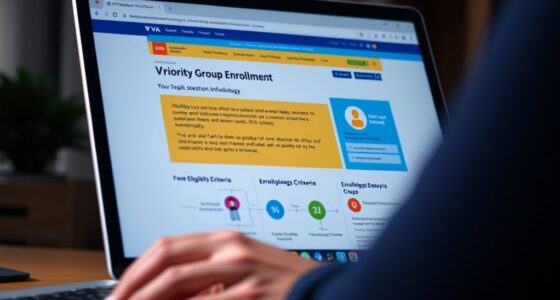To strengthen your hearing-related VA claim, a well-crafted nexus letter is essential. It links your current hearing loss to military service by providing a detailed medical opinion from a qualified provider. The letter should include specific details about your service, exposure to loud noises, and test results that support the connection. With the right approach, this evidence can markedly improve your chances of approval. Keep going to discover how to get the most effective nexus letter for your claim.
Key Takeaways
- A nexus letter links current hearing loss to military service, strengthening the claim’s credibility.
- It should be written by a qualified healthcare provider with detailed medical opinions and supporting evidence.
- Including service details and exposure history helps establish a clear connection between service and hearing issues.
- A well-crafted nexus letter can overcome claim challenges and increase chances of VA approval.
- The strength and specificity of the opinion are critical for making the claim more compelling.

When filing a hearing-related claim with the VA, providing solid medical evidence is essential, and nexus letters play a vital role in strengthening your case. A hearing loss diagnosis alone might not be enough to secure the veteran compensation process you deserve. The VA relies heavily on medical opinions to establish service connection, and that’s where a well-crafted nexus letter becomes critical. This document, written by a qualified healthcare provider, links your current hearing condition directly to your military service. Without a clear connection, your claim might face delays or denials, even if you have documented hearing issues.
Understanding the importance of a nexus letter helps you see why it’s worth investing time and effort into obtaining one. The VA’s evaluation process considers whether your hearing loss is service-connected, which hinges on credible medical evidence demonstrating a link. A diagnosis of hearing loss shows you have the condition but doesn’t establish how or when it started. A nexus letter fills that gap, providing a professional opinion that your hearing loss is more likely than not caused or aggravated by your military service. This connection is crucial during the veteran compensation process because it transforms medical findings into legal proof of service connection.
A nexus letter links your hearing loss to military service, transforming medical findings into legal proof for VA claims.
When requesting a nexus letter, you should choose a healthcare provider familiar with VA claims and knowledgeable about military hearing standards. The letter should include details about your military service, evidence of exposure to loud noises or incidents that could cause hearing damage, and an explanation of how these factors contributed to your current hearing loss. The provider must clearly state their medical opinion, supported by your medical history and test results, that links your hearing loss to your service. The stronger and more specific the nexus letter, the better your chances of overcoming any claim challenges.
Additionally, understanding the role of medical evidence in the VA claims process can significantly enhance your chances of success. Ultimately, a well-prepared nexus letter can greatly influence your success in the veteran compensation process. It serves as a bridge connecting your hearing loss diagnosis to your service history, making your claim more credible and compelling. If you want to improve your chances of a favorable decision, ensure your nexus letter is detailed, accurate, and written by a qualified medical professional. Remember, the VA depends on these expert opinions to validate your claim, so investing in a strong nexus letter can make all the difference in securing the benefits you’ve earned through your service.

Premium Hearing Aid Cleaning Kit – Compatible with Rechargeable Hearing Aid with Bluetooth, Oticon, Phonak, Hearing Aid Cleaning Tools with Pen, Spray, Brush, Cloth, Hearing Aid Supplies Accessories
CLEANS ALL MODERN HEARING AIDS – Compatible with rechargeable Bluetooth models (including charging cases), and also compatible with…
As an affiliate, we earn on qualifying purchases.
As an affiliate, we earn on qualifying purchases.
Frequently Asked Questions
How Do I Find a Qualified Medical Professional for a Nexus Letter?
To find a qualified medical expert for a nexus letter, start by researching doctors with experience in hearing-related claims and VA disability evaluations. Look for those familiar with the certification process and who have a proven track record of providing detailed, credible nexus letters. You can ask your primary care doctor for recommendations, or check with veterans’ service organizations and online directories to verify they’re experienced and reputable.
What Is the Typical Turnaround Time for Obtaining a Nexus Letter?
The typical turnaround time for obtaining a nexus letter varies depending on the professional’s availability and complexity of your case. Generally, you can expect timing estimates from a few days to several weeks. To speed things up, make certain your provider has all necessary documentation ready and communicates clearly about their timeline. Keep in mind, more experienced specialists may have longer wait times, but their evaluations tend to be more thorough.
Can a Nexus Letter Be Used for Other Types of VA Claims?
Yes, a nexus letter can support other VA claims beyond hearing issues. While it’s most common for hearing-related claims, it provides critical medical evidence linking your condition to service. You’ll want to include thorough claim documentation to strengthen your case. By clearly establishing the connection through a well-written nexus letter, you improve your chances of a successful claim, whether for migraines, PTSD, or other service-related conditions.
What Are Common Mistakes to Avoid When Requesting a Nexus Letter?
When requesting a nexus letter, avoid common mistakes like neglecting to include solid medical documentation that clearly links your condition to service. Make certain the letter is written by an expert with relevant qualifications to enhance credibility. Don’t ask for vague statements; instead, request detailed opinions that directly support your claim. Double-check that the letter addresses key medical connection points, making your case stronger and less likely to be questioned.
How Much Does a Nexus Letter Generally Cost?
A nexus letter usually costs between $300 and $1,000, depending on its complexity. Think of it as an investment in your claim’s foundation, where professional qualifications play a key role. Specialists with medical expertise or VA claim experience tend to charge more but often provide stronger, more credible letters. Always request a clear cost estimation upfront, so you understand what you’re paying for and avoid surprises down the road.

Decibullz – Custom Molded Earplugs, 31dB Highest NRR, Comfortable Hearing Protection for Shooting, Travel, Swimming, Work and Concerts (Black)
CUSTOM MOLDED EARPLUGS: Easily and quickly fitted to the exact shape of your ear. This creates a perfect…
As an affiliate, we earn on qualifying purchases.
As an affiliate, we earn on qualifying purchases.
Conclusion
In summary, using nexus letters for hearing-related claims is like building a sturdy bridge—clear, strong, and essential for success. They connect your medical evidence to your claim, helping VA see the full picture. Make sure your nexus letter is well-prepared and thorough, so it can stand as a solid foundation for your case. With the right approach, you can navigate the process more confidently and increase your chances of winning your hearing claim.

Audiometer Patient Response Button for Hearing Tests | Audiologist-Trusted Audiometry Switch | Rated 500,000+ Clicks | Universal 1/4" Plug | Magnetic for Sound Booths
Designed by a hearing professional for real-world clinical use.
As an affiliate, we earn on qualifying purchases.
As an affiliate, we earn on qualifying purchases.

8 Pieces Hearing aid Amplifier Cleaning Tools, Earbuds/Headphones Cleaner Brush Kits with case
Multi-functional Hearing Aid CleaningTools: It is suitable for hearing aids, earphones, ear molds, earplugs and other difficult to…
As an affiliate, we earn on qualifying purchases.
As an affiliate, we earn on qualifying purchases.










